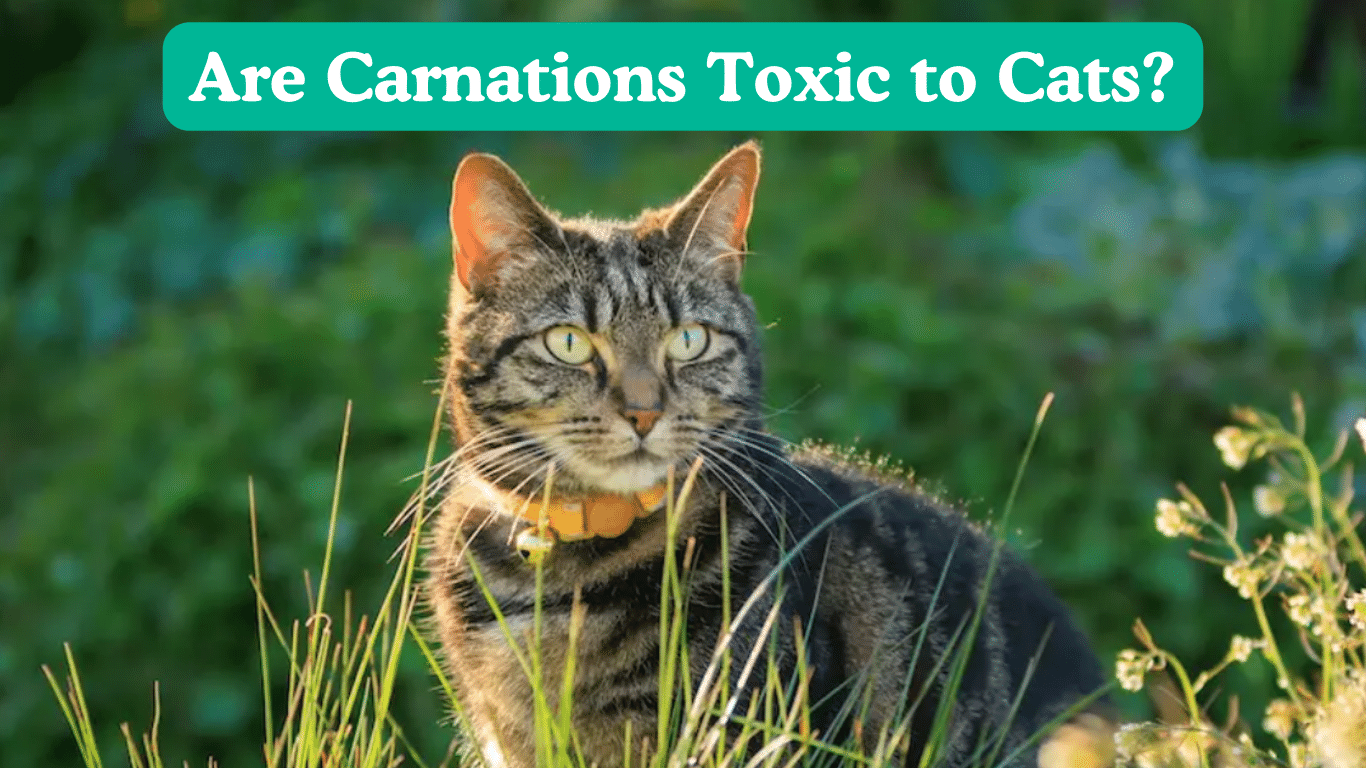Introduction
Hey there, pet lovers! If you’re a cat parent like me, you know how curious our feline friends can be. But did you know that some flowers could be harmful to our beloved kitties? Today, we’re going to talk about one specific flower: carnations. These beautiful blooms might brighten up a room, but are they safe to have around your whiskered companion? Stick around as we uncover the truth are carnations toxic to cats? Let’s keep our furry pals safe and happy!
Table of Contents
Are Carnations Toxic to Cats?
Understanding Carnations
Carnations are popular ornamental flowers known for their vibrant and diverse colors. They are widely recognized for their long-lasting freshness and are commonly used in floral arrangements and decorations. These blooms are native to the Mediterranean region and have become a symbol of love and fascination throughout history. Understanding the characteristics and attributes of carnations is vital in evaluating their potential impact on feline companions.
Common Varieties of Carnations
There are several common varieties of carnations, including the original species (Dianthus caryophyllus), miniature or ‘mini’ carnations, and spray carnations. The original species typically features large, full blooms and is often utilized in formal arrangements. Mini carnations, on the other hand, are smaller in size and are favored for their delicate allure. Spray carnations, known for their multiple blooms on each stem, are a popular choice for various ornamental purposes. Understanding the distinctions among these varieties is essential for cat owners when identifying potential risks.
Toxicity in Carnations for Cats
Carnations, while visually appealing, can pose a potential risk to cats due to their toxicity. These flowers contain natural compounds that, if ingested by cats, may lead to adverse effects. It’s important for cat owners to be aware of this toxicity and take necessary precautions to prevent exposure. By understanding the specific toxic components in carnations, owners can effectively safeguard their feline companions from potential harm.
- Common toxic compounds in carnations
- Adverse effects on cats
- Precautions for cat owners
Symptoms of Toxicity in Cats
When a cat is exposed to toxic elements in carnations, it may exhibit various symptoms of distress. Common indicators of toxicity in cats include:
- Vomiting
- Diarrhea
- Oral irritation
- In severe cases, dehydration
In addition to these common symptoms, cats may also show signs of:
- Excessive drooling
- Lethargy
- Loss of appetite
- Weakness
- Difficulty breathing
Recognizing these symptoms and seeking prompt veterinary care is vital in mitigating the impact of carnation toxicity on cats. Immediate action and awareness of these symptoms can significantly contribute to ensuring the well-being of feline companions.
Caring for Cats in a Carnation-Containing Environment
Prevention Tips
Preventing exposure to toxic plants such as carnations is essential for the well-being of cats. Maintaining a safe environment for feline companions involves proactive measures, including placing carnations and other potentially toxic plants out of the cats’ reach. Additionally, educating oneself on the identification of plant species and promptly addressing any suspected incidents of ingestion are critical prevention measures. By implementing these precautions, cat owners can effectively protect their pets from plant-related hazards.
What to Do If Your Cat Ingests Carnations
It’s important for cat owners to be prepared in case their feline companion ingests carnations or shows symptoms of exposure to these flowers. The following steps can help address the situation with care and promptness:
- Assess the Situation: If you suspect that your cat has ingested carnations or is exhibiting unusual symptoms, carefully observe their behavior and look for evidence of plant material near the cat.
- Seek Immediate Veterinary Attention: Contact a veterinarian without delay and describe the situation in detail. Be sure to mention the potential ingestion of carnations and any specific symptoms that your cat is displaying.
- Follow Professional Guidance: Once you have sought veterinary assistance, follow the recommendations provided by the veterinarian. This may involve bringing your cat in for immediate treatment or following specific care instructions at home.
- Monitor Your Cat’s Condition: After seeking veterinary attention and following the prescribed treatment, carefully monitor your cat’s condition at home. Look for improvements in symptoms and be attentive to any further changes in behavior that may require additional medical evaluation.
- Prevent Future Exposure: Take measures to ensure that your cat cannot access carnations or other potentially harmful flowers in the future. This may involve placing flowers in areas that are completely inaccessible to the cat or choosing alternative floral arrangements that are safe for pets.
Conclusion
In conclusion, the presence of carnations can pose a potential risk to cats due to their inherent toxicity. By understanding the characteristics, varieties, and toxicity of carnations, cat owners can take proactive measures to safeguard their beloved pets. Recognizing the symptoms of toxicity and adhering to preventative guidelines are crucial steps in mitigating the impact of carnations on feline companions. Ultimately, fostering a safe and informed environment is instrumental in ensuring the well-being and vitality of cats in the presence of carnations.

